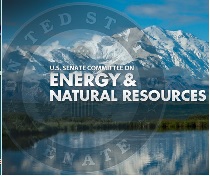Committee for a Responsible Federal Budget Calls Delaney Infrastructure Plan “Fiscally-Responsible” and “Worthy of Consideration”
WASHINGTON – December 17, 2014 – (RealEstateRama) — The Committee for a Responsible Federal Budget (CRFB) has published an analysis of Congressman John K. Delaney’s (MD-6) Infrastructure and Global Tax Competitiveness Act (H.R. 5857), calling the legislation “fiscally-responsible” and “worthy of consideration next Congress.”
Delaney introduced his new infrastructure legislation last week, which makes the Highway Trust Fund solvent for six years, creates a new infrastructure fund for state and local governments to access, and reforms the overseas tax code. The bill also creates an eighteen-month deadline for comprehensive or international tax reform. Under the legislation, if no international tax reform bill passes into law, a fallback option that ends deferral but with greatly reduced rates is triggered. Additionally, the bill establishes a commission to create permanent solvency for the Highway Trust Fund.
“Delaney’s proposal is fiscally responsible: it appears to raise enough revenue to offset the HTF shortfall and fund an infrastructure bank, all without double-counting revenue as Camp’s Tax Reform Act did. (Camp’s tax reform plan claimed that same revenue as contributing toward overall revenue-neutrality). More importantly, the proposal recognizes this solution is only a band-aid for both the issues of tax reform and infrastructure spending, and puts processes in place to accomplish both. In addition, the increased infrastructure spending and more efficient tax code would boost long-term economic growth. For these reasons, the proposal is certainly worthy of consideration next Congress.”
The Committee for a Responsible Federal Budget is a bipartisan, non-profit organization. For more information on the CRFB, click here.
The Infrastructure and Global Tax Competitiveness Act (H.R. 5857):
- Deemed Repatriation at 8.75% Tax Rate to Pay for Infrastructure
- Same rate proposed for cash held abroad by outgoing House Ways & Means Chairman Dave Camp in his tax reform package. Existing overseas profits accumulated by U.S. multi-national corporations would be subject to 8.75% rate, replacing deferral option and current rate of 35%.
- Funds six year reauthorization of a Surface Transportation Bill by replenishing the Highway Trust Fund, the federal government’s primary funding mechanism for surface transportation projects.
- Capitalizes $50 billion dollar American Infrastructure Fund (AIF) which is leveraged to finance $750 billion of additional transportation, water, energy, communications and education infrastructure projects. Financing only available to state and local governments.
- Broader Tax Reform Trigger
- Infrastructure and Global Tax Competitiveness Act creates an eighteen month deadline for tax reform, which remains an urgent priority for our economy.
- Constructive tax reform proposals have been put forward in both chambers, but Congress needs a deadline to cross the finish line.
- Fallback International Tax Reform
- If reform is not enacted, a fallback international tax package to make U.S. business climate more competitive would be implemented.
- Fallback reform would end deferral and establish new lower rates on international earnings, eliminating the lock-out effect that discourages repatriation and allowing for the free flow of profits back to the United States.
- Follows “Option Z” framework developed by Senate Finance Chair Max Baucus, but with different rates. On Active Market Foreign Income, a company would pay a 12.25% tax to the U.S. if they earn their money in a zero tax jurisdiction, but only a 2% tax to the U.S. if they are already paying the OECD average of 25% abroad, with a sliding scale in-between.
- Reduces a multi-national company’s incentive to invert.
- Long-term Highway Trust Fund Solvency
- The Highway Trust Fund’s importance to the nation’s economy cannot be overstated and Congress must act to stabilize the fund so that vital transportation needs can be met.
- The Highway Trust Fund faces an annual shortfall of $15-18 billion due to outdated funding stream levels and technological and demographic changes.
- The Infrastructure and Global Tax Competitiveness Act provides six years of solvency, providing immediate certainty to the private sector and policymakers.
- To create even longer-term certainty and stability, the Infrastructure and Global Tax Competitiveness Act establishes a bipartisan and bicameral commission that is tasked with researching and proposing a solution for permanent solvency of the Highway Trust Fund.















